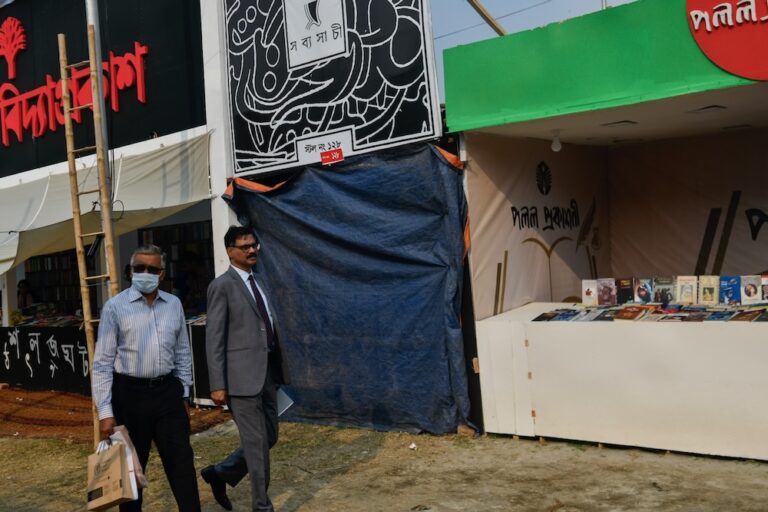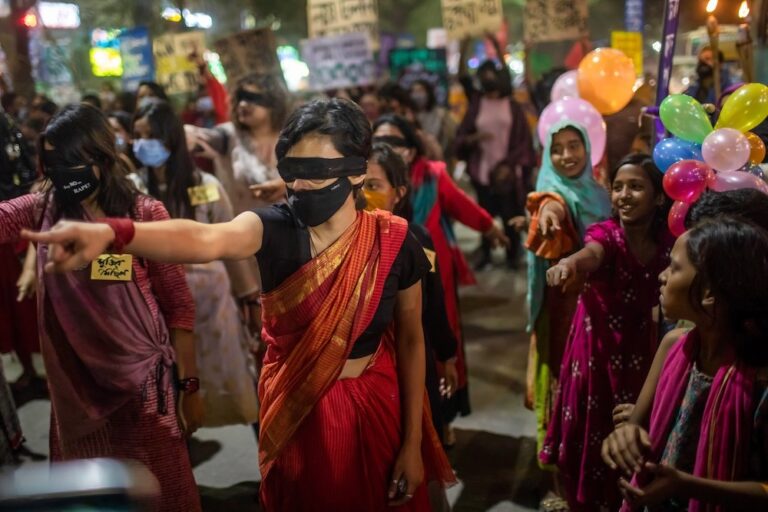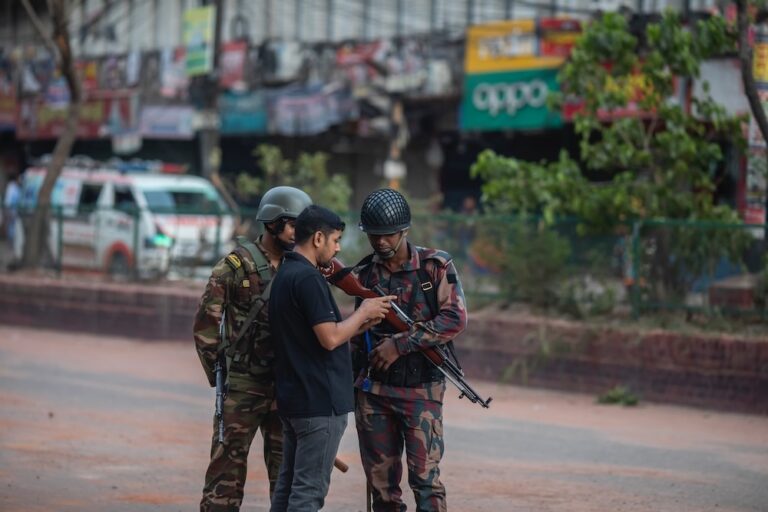On 26 March 2000, hundreds of people from across the country joined writer Humayun Ahmed in a silent demonstration in Sylhet, the eastern divisional town of Bangladesh. Humayun is a national award winner and one of the countryâs most popular writers, novelists, playwrights and film directors. The writerâs day long hunger strike, held to protect […]
On 26 March 2000, hundreds of people from across the country joined writer Humayun Ahmed in a silent demonstration in Sylhet, the eastern divisional town of Bangladesh. Humayun is a national award winner and one of the countryâs most popular writers, novelists, playwrights and film directors. The writerâs day long hunger strike, held to protect Sahjalal Science and Technology University (SSTU) from a controversy, was mostly peaceful.
Along with a number of his family members, Humayun began a hunger strike in front of the
SSTU main entrance at 8:00 a.m. (local time) in support of the spirit of the liberation war and the university, and protesting the attack against university teachers over the naming of some of the universityâs halls and dormitories.
The countryâs main opposition political party, the Bangladesh Nationalist Party (BNP), and its Islamic fundamentalist allies are opposed to naming some of the halls after a national figure, Sheikh mujibur Rahman, the founding father of the country, the mother of liberation war martyr Jahanara Imam, and a number of other dignitaries. They have instead demanded that the halls be named after awlias (religious leader) Sylhet. Their protests have thus far resulted in the killing of two people and numerous injuries.
When he began the hunger strike, Humayun said, “this is a personal and family protest. I’m here to respond to my moral responsibility to the educational institution and the spirit of the liberation war. They also contributed a lot to the nation, there is no reason to oppose the naming after them.” He added, however, that other university buildings could be named after the Muslim holy men.
Humayun, a former professor of biochemistry of Dhaka university, also criticised student politics. “Study and study should be the main mission of the student,” he noted.
While Humayun was staging the fast, which ended at about 5:00 p.m., angry activists from the BNP and its rightist allies demonstrated in the town, and called on people to not join the writer’s protest. However, the much talked about day passed more or less peacefully, barring some stray incidents. As a result of this controversy, the university has remained closed for more than eight months.
Three people, including two journalists who came from Dhaka to cover the event, were injured as the opposition was trying to enforce a partial siege near the city center of Sylhet. Ahmend Abit, a reporter for the Bengali daily “Banglar Bani”, was stabbed by fundamentalist activists in the city center, about 1.5 kilometres from the university campus. A photojournalist for the daily “Prothom Alo” and a cultural activist were also injured during the incident.
Humayun announced that he will meet with the president, prime minister and leader of the opposition and ask them to make a sincere effort to open the countryâs educational institutions, whose activities have been suspended for political reasons.
Subsequently, on 6 April, Media Watch reported that a fundamentalist group declared a ban on Humayun in Sylhet. They set fire to some of Humayun’s books and declared that no bookshop in Sylhet was allowed to sell his novels.


